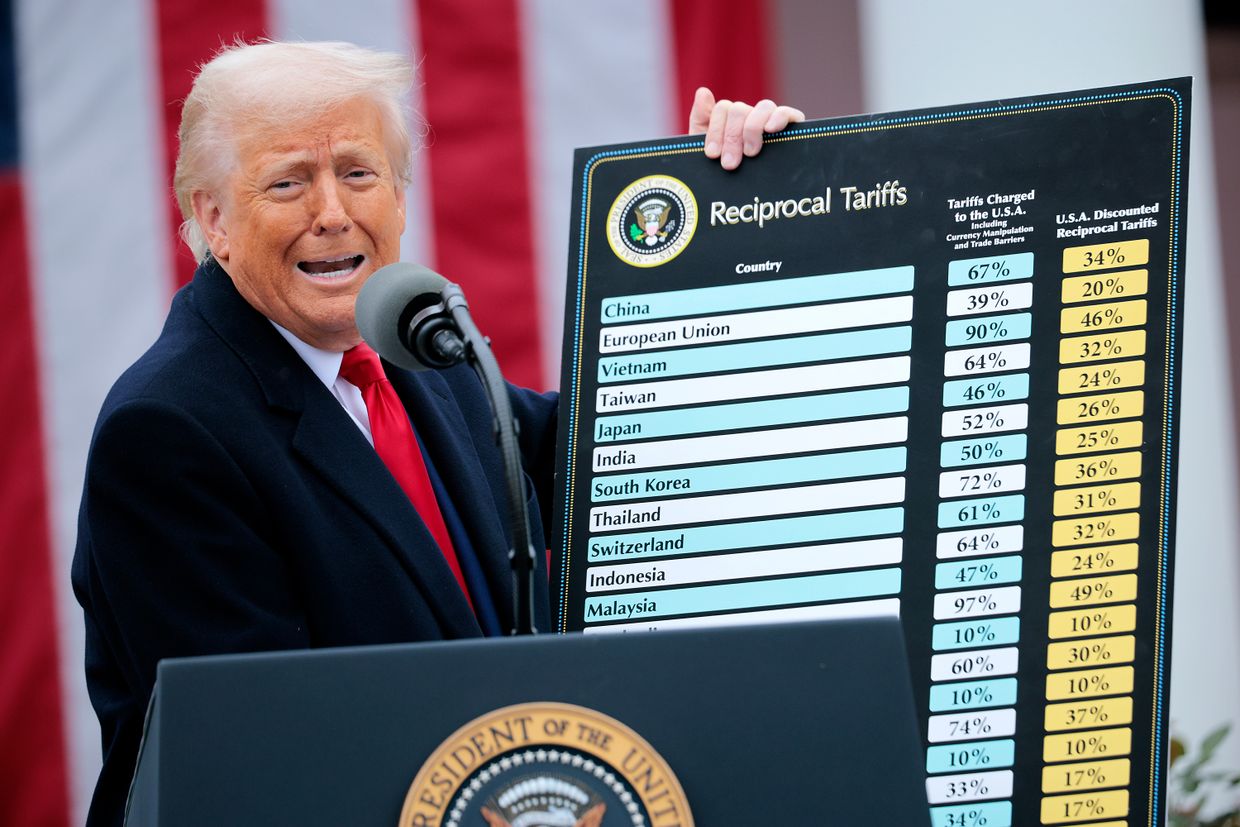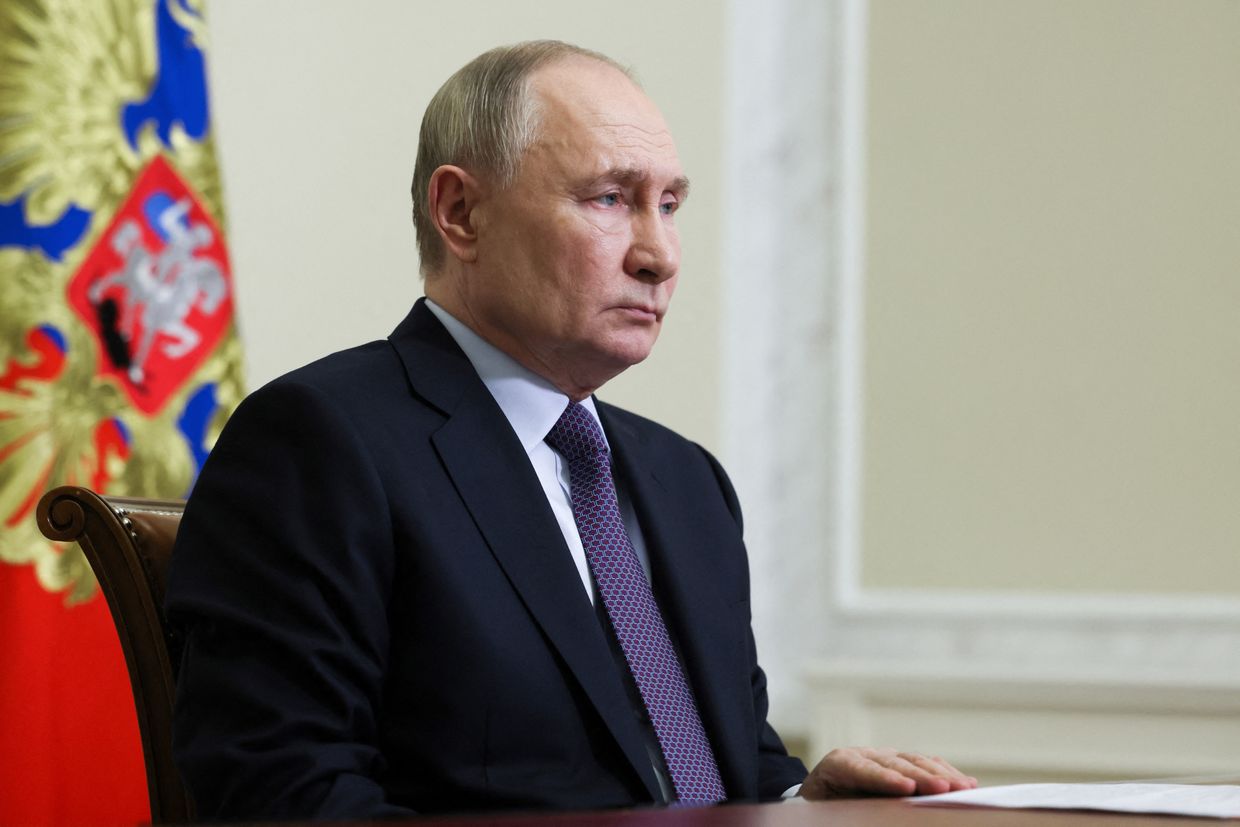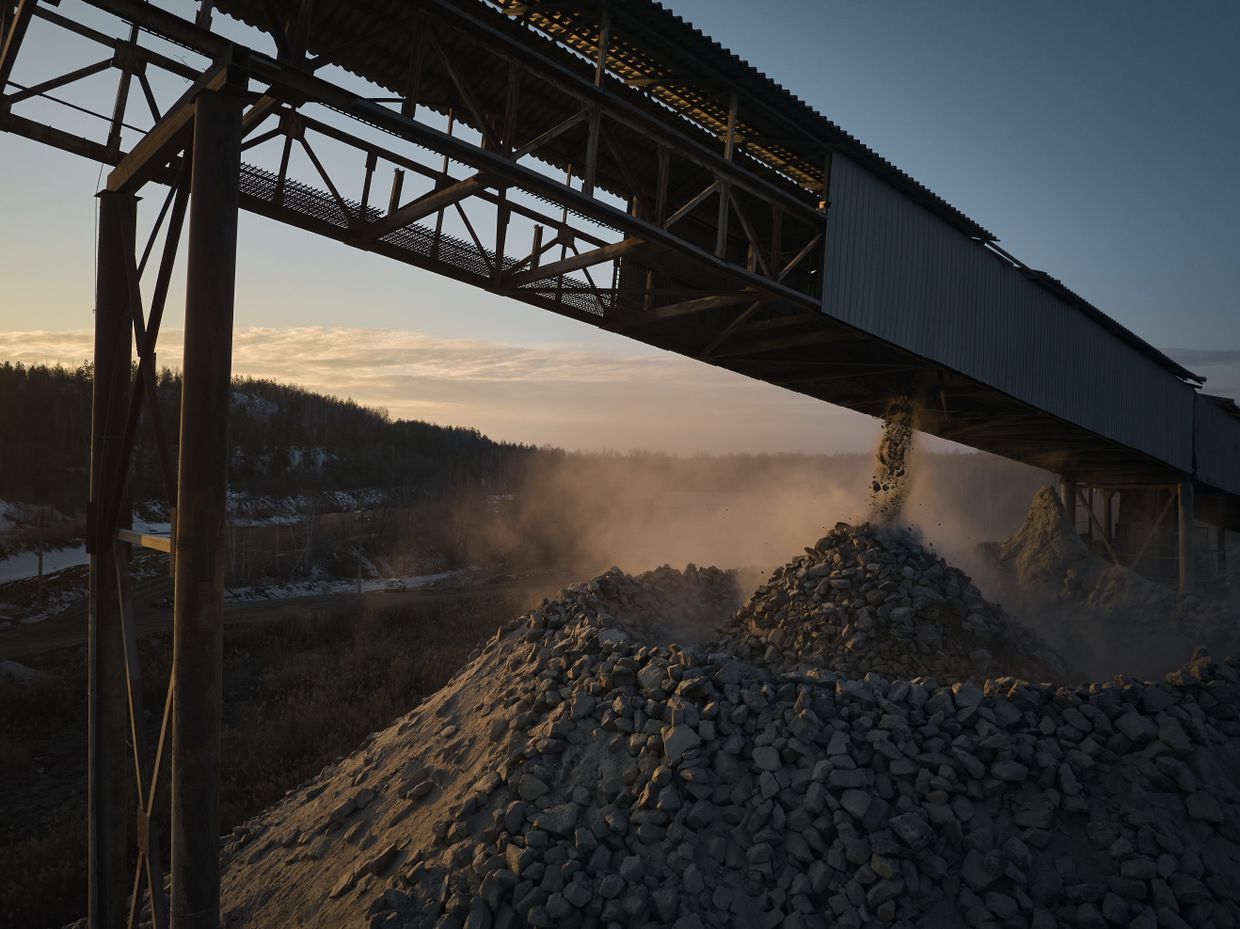"I have great hope that an agreement for a ceasefire in Ukraine will be reached this weekend," German Chancellor Friedrich Merz said on May 9, shortly before traveling to Kyiv alongside the leaders of France, Poland, and the U.K.
U.K. Prime Minister Keir Starmer, French President Emmanuel Macron, German Chancellor Friedrich Merz, and Polish Prime Minister Donald Tusk will arrive in Kyiv early on May 10.
The United States embassy in Kyiv on May 9 issued a warning that Russia could launch "a potentially significant" attack in the coming days, despite Putin's self-declared Victory Day "truce."
The sanctioned oil tankers have transported over $24 billion in cargo since 2024, according to Downing Street. The U.K. has now sanctioned more shadow fleet vessels than any other country.
The sanctions list includes 58 individuals and 74 companies, with 67 Russian enterprises related to military technology.
Washington and its partners are considering additional sanctions if the parties do not observe a ceasefire, with political and technical negotiations between Europe and the U.S. intensifying since last week, Reuters' source said.
Despite the Kremlin's announcement of a May 8–11 truce, heavy fighting continued in multiple regions throughout the front line.
Putin has done in Russia everything that Luiz Inacio Lula da Silva had been against in Brazil.
The Kyiv Independent’s contributor Ignatius Ivlev-Yorke spent a day with a mobile team from the State Emergency Service in Nikopol in the south of Ukraine as they responded to relentless drone, artillery, and mortar strikes from Russian forces just across the Dnipro River. Nikopol is located across from the Russian-occupied Zaporizhzhia Nuclear Power Plant in the city of Enerhodar.
Russia, Belarus excluded from Trump's sweeping tariffs due to existing sanctions, White House says

The U.S. did not include Russia on its "Liberation Day" tariff list as the existing sanctions "preclude any meaningful trade," Axios reported on April 3, citing White House spokesperson Karoline Leavitt.
U.S. President Donald Trump unveiled a sweeping list of "reciprocial tariffs" on April 2, imposing a baseline 10% duty on all countries — including Ukraine — with even higher rates for major trade partners like the EU.
Russia and Belarus were not included on the list, according to the White House charts.
Talking to Axios, Leavitt said that Russia and Belarus were left off the list because of the already imposed economic sanctions. The news outlet nevertheless noted that even countries with a smaller traded volume with the U.S., such as Mauritius and Brunei, were included.
The spokesperson added that other heavily sanctioned countries, such as Cuba and North Korea, were also left out of the list.
The U.S. and other nations imposed heavy sanctions against Moscow after the start of its full-scale invasion of Ukraine in 2022. U.S.-Russia trade flows went from $36 billion in 2021 to about $3.5 billion in 2024.
Trump previously hinted at the possibility of easing some of the sanctions imposed on Russia as part of an effort to broker a ceasefire and a peace deal in Ukraine.
At the same time, the U.S. president threatened Moscow with secondary tariffs on Russian oil exports as he grows frustrated with stalled negotiations.

The new tariffs were described by the media as a "historic global trade war," with the Trump administration presenting it as a step toward restoring economic sovereignty and security.
Some 60 countries or trading blocs were hit with additional duties higher than the 10% baseline, including the EU (20%), China (34%), and Taiwan (32%). Canada and Mexico were among those excluded due to the already existing 25% tariff.
The list includes some surprising additions, such as Heard and McDonald Islands, Australia's uninhabited external territory about 1,500 kilometers (900 miles) north of Antarctica.
"My advice to every country right now is do not retaliate. Sit back, take it in, let's see how it goes," U.S. Treasury Secretary Scott Bessent said on Fox News's Special Report program.
"If you don't retaliate, this is the high-water mark."
The EU and China have already pledged a response to Trump's tariffs.

Most Popular

After 3 years of full-scale war in Ukraine, Europe announces plan to ban all Russian gas imports

Ukraine, Europe's ceasefire proposal includes US security guarantees, no recognition of Crimea, Reuters reports

Journalist Roshchyna's body missing organs after Russian captivity, investigation says

After Russia's deadly attack on Kyiv, Vance reposts denunciation of Zelensky

Ukrainian sea drone downs Russian fighter jet in 'world-first' strike, intelligence says
Editors' Picks

How medics of Ukraine’s 3rd Assault Brigade deal with horrors of drone warfare

As Russia trains abducted children for war, Ukraine fights uphill battle to bring them home

'I just hate the Russians' — Kyiv district recovers from drone strike as ceasefire remains elusive



